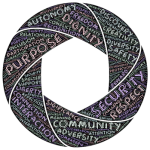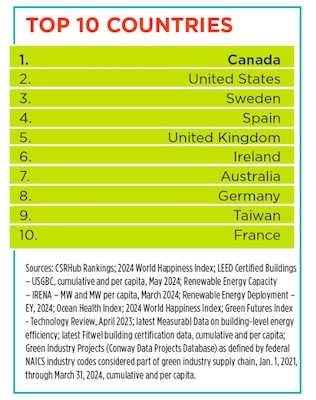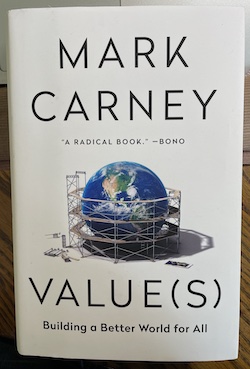Startup Purpose Is Why CSR—DEI—ESG—SDG
Startup Purpose Is Why: Startups, as well as small business and corporations across the globe have four principal terms for purposes aimed at improving social and environmental outcomes for people and the planet—Corporate Social Policy (CSR), Diversity Equity & Inclusion, Environmental, Social & Governance (ESG) and Sustainable Development Goals (SDG)1. Whole countries use the phrases and their three-letter acronyms for their social progress on an much larger scale.
This is an introduction to a vast and vital subject that aims to help entrepreneurs who are starting on tho consider their own venture’s startup purpose.
starting on tho consider their own venture’s startup purpose.
The three-letter business purpose acronyms for a range of positive and progressive corporate purpose do not cover every personal moral, or community ethic that challenge the business mind. For instance, DEI is sometimes referred to as DEIA, where the ‘A’ represents Accessibility2. Sometimes a businesses will use terminology of specific significance to them, to include, for instance, issues related to gender, color, or race.
Performance by Country

World Educators Association
Though many countries also use the same or similar terminology, their use is far from universal or consistent, nor are they immutably in place. They constantly evolve and are subject to changes in application, depending upon who is in charge at the international, national or business level. The sociopolitical environment will also have a significant impact on the subject.
There are, of course, some countries where this terminology and the acronyms are more prevalent than others. The US-based World Educators Association (WEA) has listed their the top 100 Countries for Sustainability and ESG, based on environmental, social and economic performance, as well as governance.
On the right is a list of their top ten countries. It is interesting to note that the USA is ranked 22nd between Italy and South Korea. Judgements may be both subjective and circumstantial, but nonetheless, the rankings will be at least indicative.

Sustainability Dev Report
The Sustainability Development Report shows the top ten countries is a very similar list (on the left). The US appears on this list at 46th place. The Report is a global assessment of countries’ progress towards achieving the UN Sustainable Development Goals (SDGs).
Denominator is a company that provides social data offering a holistic evaluation of countries’ and companies’ social and diversity performance. The 2024 report will show you the comprehensive nature of the way that Denominator evaluates performance, taking notice of a wide range of perspectives: Human capital, Diversity, Health & Safety, Gender, Race/ethnicity, Disability, Family, Turnover, Age, Sexuality, Human rights, Inclusion, Nationality, Labor rights.The top ten countries in the Denominator list are: Sweden, Finland, Iceland, Ireland, Norway, Luxembourg, Portugal, UK, Belgium, Netherlands. What begins to become apparent is the overlap that exists on the three country performance lists on the four indicators of business purpose.

CSRHub/Site Selection
Interestingly, and hence a reason to be careful with any of these ratings, the Annual CSRHub/Site Selection Magazine Average ESG Ratings includes Canada and the US as the top two ESG countries, in contrast to the other ratings shown above. To understand, appreciate and act upon any of the ratings, it is important to consider that the work of each one is based on particular assumptions, perspectives and data collected at different levels and number of data points.
CSRHub is a company that provides consensus ratings of company ESG performance as a lever to improve corporate sustainability. They hope that their transparent data platform is part of a broad change that relates company value to its environmental, social and governance performance. CSRHub is a certified B Corporation.
CSRHub measures of the consensus view of the societal impact of entities is based on aggregating over 989 sources of ESG data and publishing ratings when they can accurately estimate them. CSRHub is a very transparent source of evaluations of CSR/business purpose, both of countries and corporations. I recommend looking at a sample of what a CSR subscriber would see in the example of Walmart.
The view of performance on business purpose acronyms can be taken from a top down or a bottom up perspective. The levels can vary from global, country, corporation or even citizen perspectives. Nonetheless, all four of these ratings are very positive about purpose driven business in general.
Four countries appear among the top ten rated countries on three of the four lists are Sweden, Finland, Norway & the UK. In 2024, the magazine HR Director published research that revealed the Top 3 countries to work in as being Norway, Canada and Sweden, stressing that DEI are essential to a healthy and successful workplace.
Business Purpose and Company Practices
When it comes to individual companies, whether startups or multinationals, there is a big variation in practices of companies as regards the business purpose acronyms: CSR—DEI—ESG—SDG. The variation is as much on how the policies are considered and described, in addition to how well they are achieved. In terms of any evaluation, results are obviously influenced by who is doing the analysis and the criteria of evaluation used.
The Denominator list covers social and diversity data & ratings on companies across more than 195+ countries and 85+ industries. You can search for results covering 5,206,577 companies.
Startup Purpose Is Why: Companies with a moral, ethical and compassionate character, and especially startups, find that it’s ‘good business’. Forbes published an article by Shavonnah Schreiber in April 2025, in which she says, “Founders might question if spending time addressing ethical guidelines is going to actually grow the company: Will it increase sales? Will it help recruit investors? Will it help drive ROI? These are the typical hard-hitting points that are included in a business plan. As a founder myself, the answer to all of these questions is a resounding yes.”
If there are moves against public espousal of the principles that lie behind the terms, companies may take different routes to express a principle. For example, Walmart does not now talk publicly about DEI as such, but nonetheless says, “Our founder, Sam Walton, said it best: ‘Our people make the difference.’ At Walmart, our vision is simple yet powerful: ‘Everyone included.’ By nurturing a workplace culture where everyone is – and feels – included, we create an environment where everyone wins.”
Curiously, while it is reported that Target is shutting down its Black-focused employee program and supplier diversity efforts, their corporate website still says that their, “vision is to co-create an equitable and regenerative future together with our guests, partners and communities.” While Ford is withdrawing from corporate diversity rankings and pausing supplier diversity initiatives, their corporate website still says that their purpose as a company is, “to help build a better world, where every person is free to move and pursue their dreams.“
On the other hand, in early 2025, many quoted company Annual Meetings have rejected motions to end DEI policies. Those companies include Apple, Costco, Disney and Levi Strauss. At Costco and Apple, for instance, shareholders rejected anti-DEI proposals by margins exceeding 95 per cent. It seems that other major companies have received anti-DEI shareholder proposals from right-leaning groups.
A way to consider and rate businesses on smaller business businesses (and some big ones) on purpose performance is to check, first whether they are B Corporations or Benefit Corporations (if you still confuse these two, then B Corporation provides a good definition of the differences). If they are, then check up on them. If they are a BCorp, then go to the BCorp site for your country and search for the company, where you will see their ‘Overall B Impact Score’, as well as their rating on the five components: Governance, Workers, Community, Environment and Customers. The ratings are different to CSR—DEI—ESG—SDG, but they cover similar ground in a slightly different way.
Startup Purpose Is Why and Business Outcomes
A startup’s purpose and its positive impact on profit stems significantly from a growing cultural trend towards issues like sustainability, inclusion and the focus on all stakeholders enhance ethical governance and leadership to achieve positive social outcomes as well as financial success.
 Mike Carney, who was the head of both the Canadian and British national banks, as well as having been the UN special envoy on climate action and finance points out, “that symbiosis between just and economic outcomes is increasingly backed by hard evidence.”
Mike Carney, who was the head of both the Canadian and British national banks, as well as having been the UN special envoy on climate action and finance points out, “that symbiosis between just and economic outcomes is increasingly backed by hard evidence.”
He is now Canadian Prime Minister and quotes an OECD study that shows that inequality has a statistically significant negative impact on economic growth.
There is a large body of evidence about the commercial as well as the social benefits of applied business purpose acronyms. For instance, the Fargo Chamber of Commerce in North Dakota says, “In today’s constantly evolving business landscape, the return on investment of diversity, equity and inclusion – or ROI of DEI – has proven to be a game-changer. Workplace inclusion is no longer a “nice-to-have” but a critical driver of innovation, employee engagement, retention and financial performance. Organizations prioritizing DEI are reaping measurable benefits, from unlocking workforce potential to boosting bottom-line results.”
When there is a pervasive negative managerial or political atmosphere surrounding the principles lying behind business purpose acronyms (CSR—DEI—ESG—SDG) and their implementation, it tends to be fueled by unprincipled, self-seeking, or discriminatory attitudes, or an over zealous commitment to short-term financial goals. However, there is a growing body of evidence that positive social and environmental purposes actually propel business to better results as well as outcomes in community in the longer term.
To some extent the claims that DEI programs discriminate against other groups may lie behind the decisions of big companies to cut overt references to the DEI acronym, but still maintain inclusive policies. A late 2024 article in Forbes pointed out “while there is an obvious moral argument for DEI, there is also a lasting impact on a company’s profitability, innovation and long-term success. Diversity is a fact. The workforce will be majority non-white and women by 2030.” Firms with diverse executive teams will be much better prepared than those without.
International Use of Business Purpose Acronyms
Many companies operating across borders or trading internationally can face tough decisions on how they handle policies concerning business purpose and their implementation. What works in one place may be inappropriate in another.
While CSR—DEI—ESG—SDG are acronyms of terms in English, their spirit and intent are not limited to English speaking countries. Hence the Suntory Group of Japan describes their purpose succinctly and firmly as “to inspire the brilliance of life, by creating rich experiences for people, in harmony with nature.” Among other things, one of the corporation’s values is ‘growing for good’, saying “We keep growing, as individuals and as a corporation, towards a better world. By continuing to grow, we expand our capacity to improve society.” Very much a multinational, Suntory owns well-known US brands like Jim Beam and Markers Mark as well as the Scottish Laphroaig whiskys.
Deutsche Bank’s CEO, Christian Sewing,, announced at the end of January 2025 that it was standing “firmly behind” its DEI practices. Their culture says, “The impact of the economic crisis has made a long-term change of corporate culture in the financial sector absolutely imperative and cultural change is needed. We understand the message – responsibility has to be the focus of our actions.” They specifically say, “A diverse workforce constitutes a very special resource. We want to make use of that potential and promote it because innovative solutions for our clients can only be devised by taking various perspectives into account.”
The Swedish multinational furniture retailer, IKEA, says, “Equality, diversity and inclusion turns our workplace into a home.” They have a great deal to say about DEI. Here’s one example, “Welcoming differences is not just good for you, it’s good for us too. We’ve learned that diverse teams have more and better ideas and help us understand and support our customers better. They also help us grow as an organization. After all, everyone has a different way of looking at the world. So, who knows? Perhaps your unique take on something could lead to a great idea that helps make customers’ and co-workers’ lives at home a little bit better.”
Business Purpose and the Fourth Industrial Revolution
The 4th Industrial Revolution (4IR) is characterized by the convergence and complementarity of emerging technology domains, including nanotechnology, biotechnology, new materials and advanced digital production technologies. The WEF says 4IR “represents a fundamental change in the way we live, work and relate to one another2. As Mike Carney points out, 4IR will result in “distributed peer-to-peer connections across powerful networks — revolutionizing how we consume, work and communicate.” Even beyond what’s taken place already.
The WEF also says, “It is a new chapter in human development, enabled by extraordinary technology advances commensurate with those of the first, second and third industrial  revolutions. These advances are merging the physical, digital and biological worlds in ways that create both huge promise and potential peril. The speed, breadth and depth of this revolution is forcing us to rethink how countries develop, how organizations create value and even what it means to be human“. The World Economics Foundation also quotes Robert J Shiller, an economics professor at Yale University: “We cannot wait until there are massive dislocations in our society to prepare for the Fourth Industrial Revolution.” I think many aspects of 4IR will impact CSR—DEI—ESG—SDG.
revolutions. These advances are merging the physical, digital and biological worlds in ways that create both huge promise and potential peril. The speed, breadth and depth of this revolution is forcing us to rethink how countries develop, how organizations create value and even what it means to be human“. The World Economics Foundation also quotes Robert J Shiller, an economics professor at Yale University: “We cannot wait until there are massive dislocations in our society to prepare for the Fourth Industrial Revolution.” I think many aspects of 4IR will impact CSR—DEI—ESG—SDG.
The business purpose acronyms are to my mind, very much about being human, but to do so in ways that set ourselves in a planetary context and remembering just how interdependent we humans are. As part of the awareness we need in business to avoid surprises, not only by the 4th IR itself, but also its impact on people and the planet. Consequently we need to be vigilant about the ways the 4th IR may impact our thinking about business purpose and social progress, but also how we define and track our business purpose acronyms.
The Butterfly Effect of Startup Purpose Is Why
Words, phrases and actions travel across borders without control. The so-called Butterfly Effect refers to a metaphor for  how a small and insignificant event can cause a major change in circumstances.
how a small and insignificant event can cause a major change in circumstances.
More than 50 years ago, Edward Lorenz, a meteorology professor at MIT had a powerful insight about the way nature works: small changes can have large consequences. The idea came to be known as the ‘Butterfly effect’, after Lorenz suggested that the flap of a butterfly’s wings might ultimately cause a tornado somewhere far away.
Hence, new ventures that work on Startup Business Is Why, should be confident that their individual efforts will have impact both on their own business and far beyond. The application of business purpose is having beneficial effects around the globe. While they may be hotly debated by some, there’s no stopping them, any more than a tornado can be arrested.
For startups, and entrepreneurs in general, we should consider ourselves as butterflies flapping our wings. Our tiny corner of concerns and behaviors on kindness, generosity, morality, ethics, and compassion has a huge positive when aggregated3. Mike Carney says, “radical changes are required to build an economy that works for all”, and the rules of business are already being rewritten.
Startup Purpose Is Why and Its Application in the Business
As you work to apply Startup Purpose Is Why in your own venture, be sure to consider practices as well as principles. Here’s 8 ways you should seek to implement the purpose:
- Choose a legal business registration that embodies your purpose;
- Involve and define your venture’s meaning of purpose with co-workers;
- Design people policies to fit purpose: in recruitment, pay ratios, benefits;
- Don’t forget to align company operating agreement and all its articles with purpose;
- Avoid confusion between your personal & business purpose, though they likely overlap;
- Ensure startup business plan and strategy fit the purpose, including the P&L and distribution;
- Embed purpose inside (systems & procedures) and outside the company (marketing/customer relations), without forgetting the wider community;
- Monitor outcomes against declared purpose (also involving co-workers in the process).
You will find additional material on Startup Purpose Is Why at Purpose Driven Startups Challenge Accepted Wisdom, Ethical Integrity to Good and Well, Startups for Good Choose Words on Purpose.
Notes:
- The Sustainable Development Goals are the aim of the 2030 Agenda for Sustainable Development adopted by all United Nations Member States in 2015, provided a shared blueprint for peace and prosperity for people and the planet. It also seeks to strengthen universal peace in larger freedom. Many companies use the SDGs or at least the relevant ones to guide their own policies. For those entrepreneurs new to the SDG concept, see this good guidance.
- For more on accessibility, see Inclusive Entrepreneurship, Support for Entrepreneurs with Disability, and Startup Business with Disability.
- As you consider the 4th Industrial Revolution, I encourage you to consider it in the light of something Ruth Bader Ginsburg said: “To make life a little better for people less fortunate than you. That’s what I think a meaningful life is. One lives not just for oneself, but for one’s community.”




